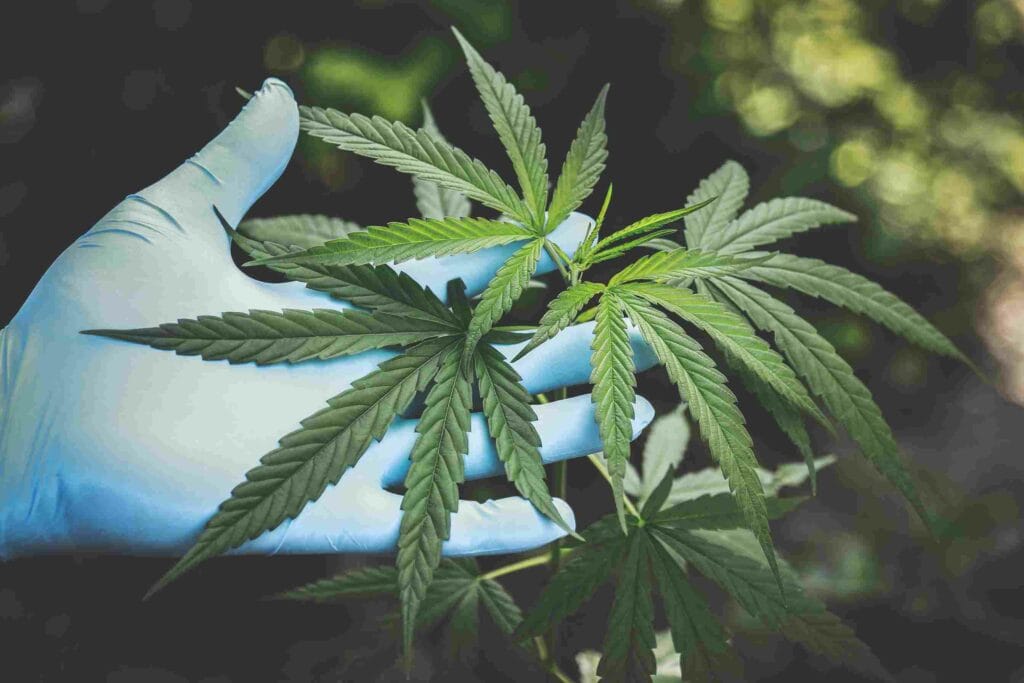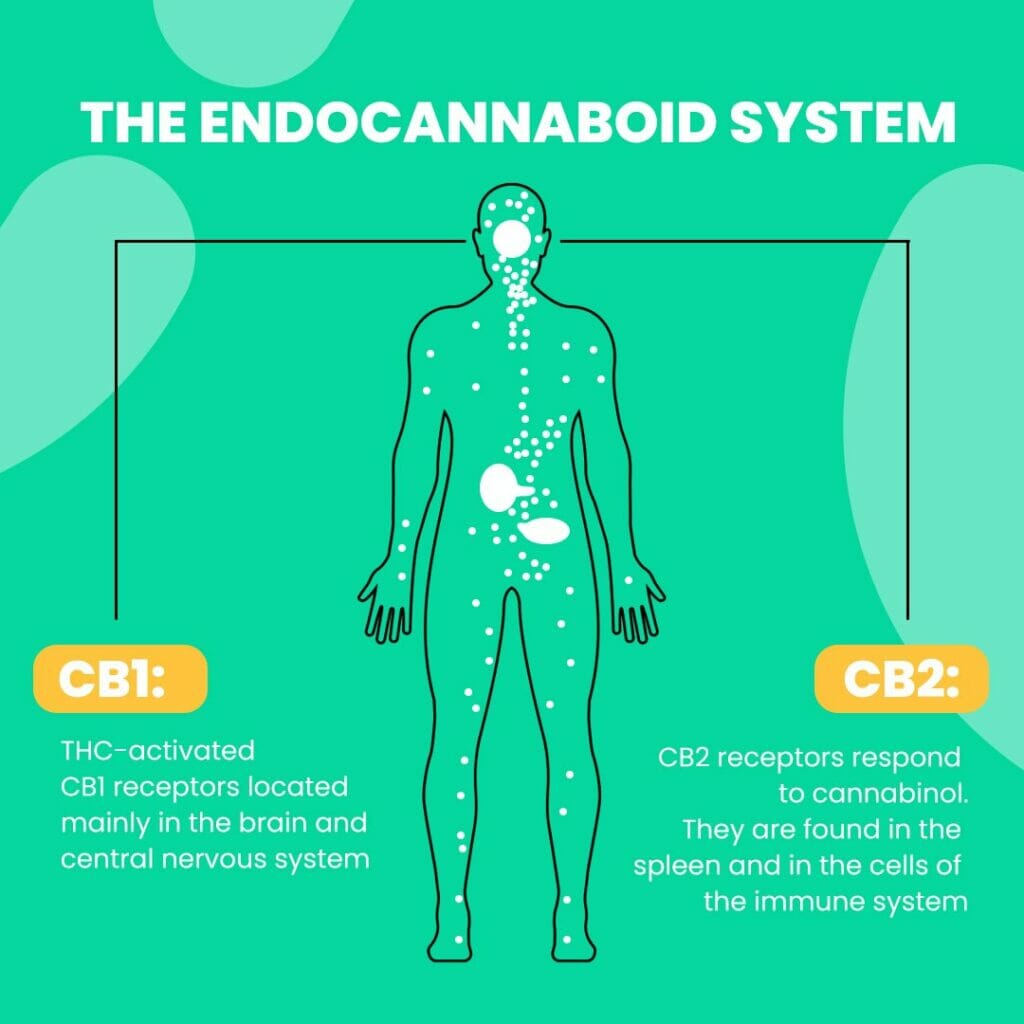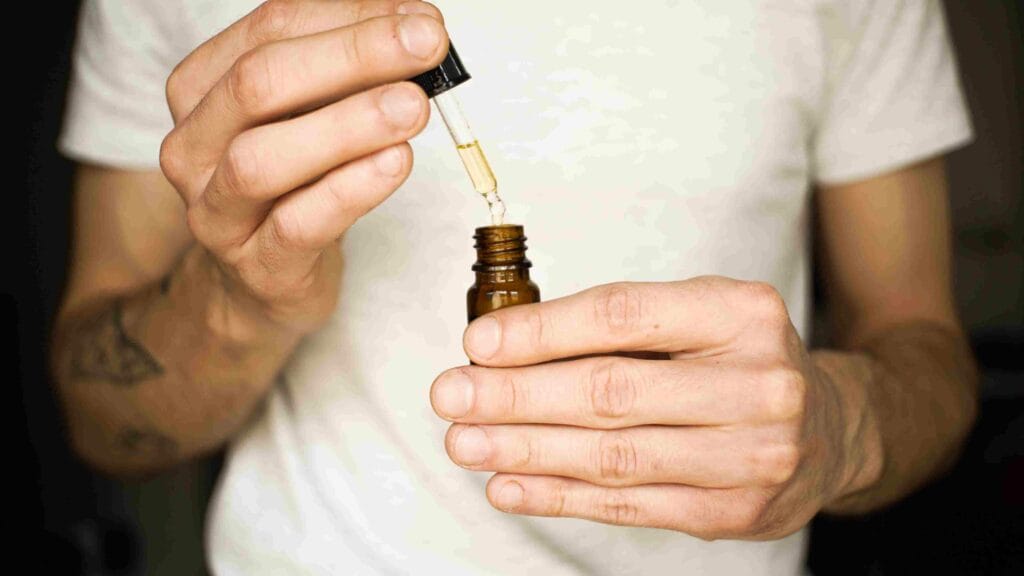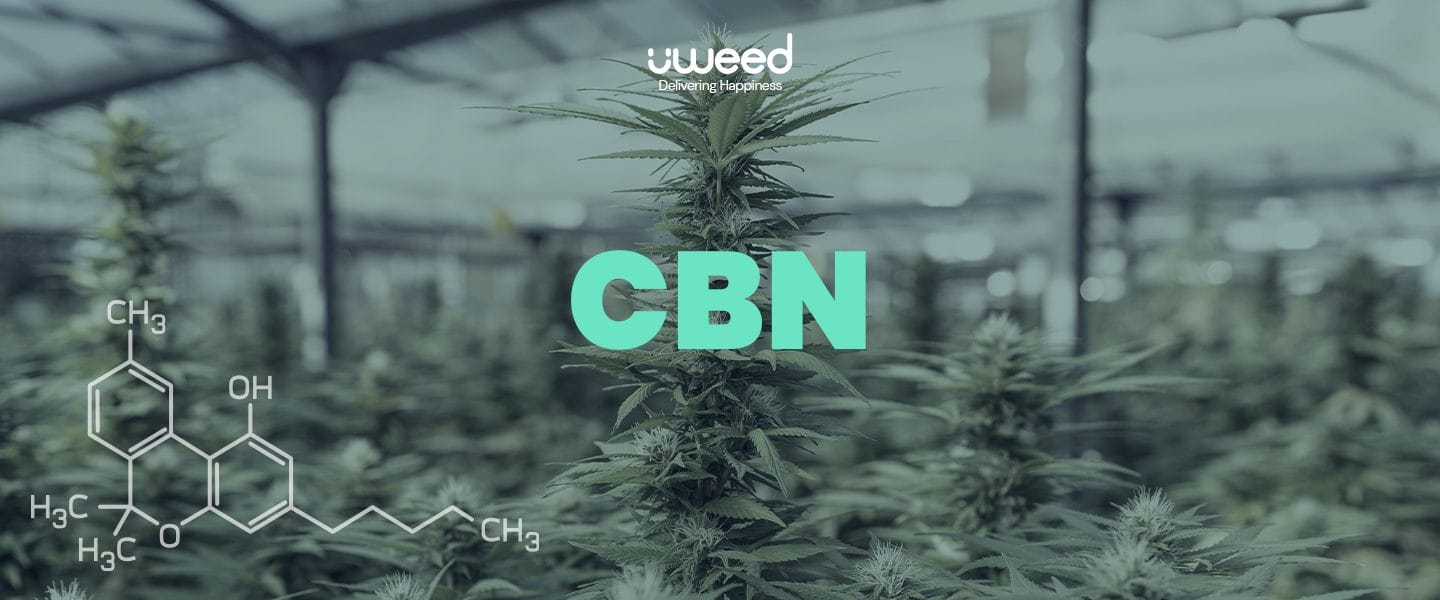CBN • What is Cannabinol and what are its effects?
CBN, also known as Cannabinol, is catching the eye of the wellness community, and it’s easy to see why! You’ve probably heard about it from cannabinoid experts. Ever wonder what CBN is and what effects it has? Let’s dive right in. We’ll uncover the secrets and effects of Cannabinol, exploring how this intriguing molecule could transform your cannabis experience. Get ready to learn about the fascinating world of CBN!
Table of contents about CBN
What is Cannabinol, or CBN?
Cannabinol (CBN), a lesser-known cannabinoid, comes from the cannabis sativa plant. It joins the extended family of compounds like THC, CBG, and CBD. Unique in its formation, the plant does not directly produce CBN. It is the result of a degradation process.
CBN forms when THC, a major psychoactive component of cannabis, ages and is exposed to heat and oxygen. This process is known as decarboxylation. Thus, CBN is primarily found in aged hemp or cannabis exposed to air, making its high concentration rare. Unlike THC, CBN is non-psychoactive and attracts interest for its potential benefits.
The difference between CBN and CBD

CBD (Cannabidiol) and CBN (Cannabinol) are two non-psychoactive cannabinoids; they are derived from the cannabis plant, but they have notable differences. CBD is a direct product of the plant, interacting with the endocannabinoid system’s receptors to produce its effects.
Conversely, CBN is the result of the degradation and oxidation of THC over time. While structurally similar to THC, CBN has a particular affinity for CB2 receptors. It also interacts differently with CB1 receptors. These differences are reflected in their interactions with our endocannabinoid system, influencing various effects on the body.
There is also another molecule you have undoubtedly heard of, CBG. CBG, often called the ‘mother cell,’ is the basis of several other cannabinoids, including CBD, THC, and even CBN, and is recognized for its neuroprotective and anti-inflammatory effects.
Is CBN psychoactive like THC?
No, CBN is non-psychoactive, unlike THC!
Even though CBN is created from Tetrahydrocannabinol, the two molecules do not share the same characteristics. Cannabinol does not have the effect of being “high” or “stoned.” In this aspect, CBN is, therefore, much closer to CBD than THC.
The effects and benefits of Cannabinol
Before diving into the topic of the effects and benefits of Cannabinol, it’s crucial to understand the system with which it interacts, known as the endocannabinoid system.
What is the endocannabinoid system?
Originating from a bygone era and preserved by human evolution, the endocannabinoid system is a complex network. It regulates essential bodily functions such as memory, mood, pain, and sleep.
Now well-armed with this fundamental information, let’s explore CBN’s multiple potential beneficial effects.

The effects of CBN on sleep
Like CBD, CBN plays a role in improving sleep. It has shown promising results in combating insomnia. Research suggests that CBN is particularly beneficial for sleep disorders. It has a more targeted effect in this area than CBD, whose benefits are more diversified.
Many users and some studies report that a mix of CBN and THC has strong sedative properties. Regular cannabis consumers are not surprised by this discovery, knowing the relaxing effects of THC products exposed to oxygen and sunlight. In summary, CBN stands out for its potential to promote deep and restorative sleep, especially when combined with THC in balanced proportions.
The benefits of Cannabinol against pain and inflammation
The relief of pain and inflammation is another valuable aspect of CBN. Scientific work has suggested that its role as an analgesic and anti-inflammatory could help alleviate certain forms of acute, chronic, or even neuropathic pain.
The neuroprotective properties of Cannabinol
And that’s not all! CBN stands out for its neuroprotective properties, which is an excellent way of saying that it can potentially increase the growth of nerve cells. According to some preliminary studies, it seems that CBN may help counter the degenerative effects of diseases like Alzheimer’s and Parkinson’s.
The effects of CBN on appetite

A comparative study focused on rodents explored the impact of CBN on appetite, revealing that mice administered with Cannabinol showed a notable increase in their food consumption. This increase translated into more copious and prolonged meals.
In contrast, CBD or cannabidiol reduced the subjects’ appetite, while CBG had no significant effect on their eating habits. These results suggest that CBN could play a distinct role in the modulation of appetite compared to other cannabinoids.
Are there any side effects of CBN?
Knowing the side effects of CBN is essential. Although the consumption of Cannabinol is generally safe, some may experience adverse reactions. Mild dizziness has been reported, as well as drowsiness, which, although beneficial for sleep, can be problematic during the day. These effects are not universal and vary among individuals.
It is advised to consult a healthcare professional before using CBN and to always prioritize personal safety by adjusting dosages. Recognizing potential side effects is a step towards responsible use of CBN for health and well-being.
How to consume CBN?
The most common way to consume Cannabinol is in oil form: simple to use and easy to dose with dropper bottles. You can also find it in the form of CBN resins to smoke or vaporize, as well as in cosmetics.
The consumption of Cannabinol oil mainly depends on personal preferences and habits, but it’s essential to consume it properly to enjoy its effects fully. Below are the main methods for consuming your Cannabinol.
Sublingual administration
To consume CBN oil, the simplest way is to place a few drops of CBN oil under the tongue (the number of drops varies according to your needs, but especially the concentration of Cannabinol in your oil).
Keep the Cannabinol oil drops under your tongue for at least 1 minute to ensure perfect absorption through the oral mucosa. This speed and efficiency make this method widespread among users.
You can take it twice daily, 1 to 2 drops at a time for your consumption. The potent Forte CBN oil from Swiss Cannamed is a good start.

CBN oil via oral capsules (or tablets)

CBD Capsules are a good choice if you can’t stand the taste and greasy consistency of CBN oil. A capsule can contain up to 10 drops of Cannabinol, and once ingested, it needs to pass through the digestive system to be absorbed by the body, which is why it takes a bit longer to act. CBN Good Night pastilles are also an easy alternative favored by our users.
Unlike other modes of consumption, this one causes delayed effects over time. There’s no more stress about measuring your dose, as capsules and gel capsules already have a preset dosage. This is, therefore, the simplest way to consume Cannabinol oil, even though its effect takes a bit longer to be felt.
Cooking
You can also cook with your cannabinol oil by adding it to your dishes, thus enjoying its effects. You can quickly revise all your favorite recipes, from starters to desserts! For this, mix it with another fat during cooking.
As with capsules, the effects are slower to appear. The maximum concentration of Cannabinol in the body is reached about 4 to 6 hours after ingestion.
Is CBN legal in Switzerland?
Is Cannabinol, CBD’s lesser-known cousin, legal in Switzerland? Good news: in Switzerland, Cannabinol is not explicitly classified as a controlled substance. This means that, like CBD, CBN can float freely in the Swiss market if it meets the country’s strict regulations. However, remain vigilant: purity and composition are fundamental! At uWeed, we scrutinize every product to ensure quality and compliance. So, are you ready to explore the fascinating world of Cannabinol?
Why choose uWeed to buy anything cannabis nad hemp ?
Choosing uWeed for your Cannabinol purchases means opting for verified excellence and a rigorous selection of products. Our Swiss CBD Shop stands out with a varied offer of the best Cannabinol brands, all rigorously tested by independent laboratories to ensure superior quality and full compliance with legislation.
We guide you through your shopping experience with comprehensive resources, including practical guides, articles, and comparisons enriched by our customers’ reviews, allowing you to make an informed choice among our range of cannabinoids with terpenes and flavonoids. Benefit from fast delivery in Switzerland and responsive customer service.
I am ready to answer your questions about CBN, CBD, and other products. Our newsletter is available for exclusive offers and in-depth information, with the additional advantage of a discount on your first order.
Ready to explore our Cannabinol range? Add your favorite products to the cart and discover the ease and safety of shopping at uWeed.


